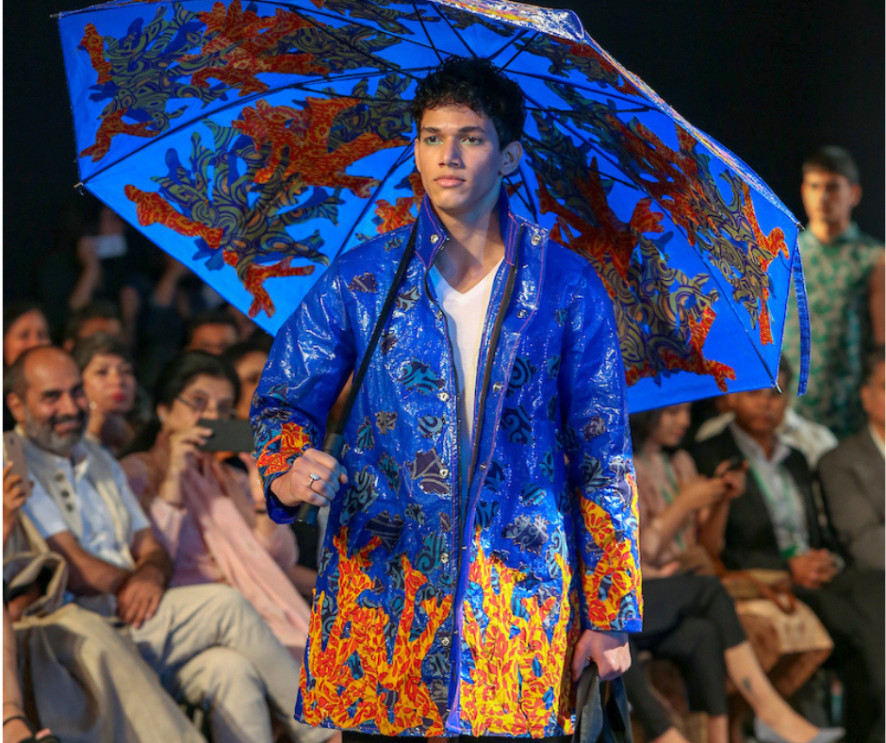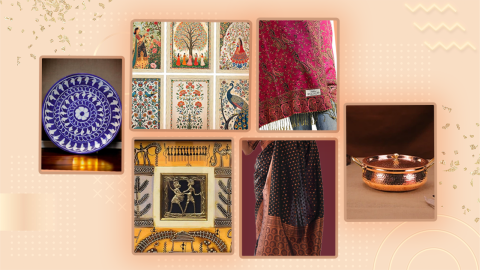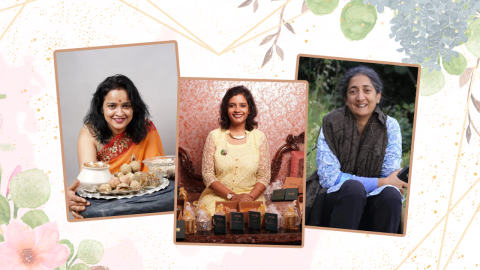‘I was a Sari’ - this zero dividend initiative invests all its profits back into developing the brand and advancing its primary social cause—women empowerment. Only recently, the upcycled collection was showcased at the Lakme Fashion Week.
Founded by Stefano Funari, the brand helps underprivileged women find new skills and financial independence by upcycling saris into contemporary apparel and fashion accessories. ‘I was a Sari’ is inspired by the works of Bangladeshi Nobel Laureate and founder of Grameen Bank, Professor Yunus. The brand has been creating sustainable products that care about the social, environmental and financial impact it makes to the local community.
I was a Sari was conceptualised in Milan and born in Dhavari, Mumbai, in collaboration with the NGO, Community Outreach Programme (CORP) in 2016. The brand’s catalogue comprises of 9 collections including bags, beaded jewellery, scarves, apparel. The entire upcycling process, meanwhile, helps to transform the lives of women artisans who lovingly handcraft each product.
Our target is to employ many more underprivileged women over a regular period. The more we produce, the more number of hours of employment we can offer our women artisans
Transforming lives of women artisans

Thanks to this unique brand, women from the local community are learning and utilising the skills of tailoring & hand embroidery for income generation to sustain their households, while gaining self-confidence and a new lease of life. All the production is managed in collaboration with its NGO partners, from their centres at Thane, Dharavi, Jogeshwari and Andheri in Mumbai.
“To keep our initiative sustainable, we take care to keep our products within an affordable range of Rs. 300–2,500,” Poornima Pande of ‘I was a Sari.’ “This is possible because we deal in volumes, to be able to employ more women. Our target is to employ many more underprivileged women over a regular period. The more we produce, the more number of hours of employment we can offer our women artisans,” she says.
Although it’s a for-profit organisation, the organisation ploughs back its entire profits into empowering its women workers and building the brand. “We are working on formulating sustainable livelihood programmes and new initiatives for our artisans like healthcare programmes for women, education loans for their children.. We also work with the NGO Charitable Trust (ACT) through their centres in Mumbai,” informs Poornima.
The brand is still working on a roadmap, where women from the local community will operate as a Self Help Group and ultimately manage the entire show. From being housewives to being employed to becoming entrepreneurs is the journey that the brand envisions for its band of women artisans.
Walking the ramp

In collaboration with Gucci's Corporate Social Responsibility (CSR) platform, Gucci Equilibrium, Gucci’s local suppliers – the embroidery houses in Mumbai trained the brand’s women artisans in the skill of hand embroidery. This was a significant step because all the traditional embroidery houses in the India are male dominated. The experience of visiting an export house was a first for many of the women, boosting their self-confidence and skilling them in a sustainable art.
As a result, the brand’s first embroidery collection, ‘Now I Can’, was eventually launched in November 2018.
Being very close to the Lakmé Fashion Week (LFW), the company decided to make most of the opportunity and began concentrating on product development for the fashion event. Consequently, four looks were created and showcased at the LFW 2018. These distinct looks involved 5 upcycled materials, 15 artisans and 500 hours of embroidery for the women artisans.
The upcycled collection at the LFW was 80% sustainable, using discarded saris, seatbelts, tarpaulin, deadstock fabric and leftover embroidery material.
The Road Ahead
The brand only works with pre-loved materials. Most of its ‘raw material’ saris are carefully handpicked from Chor Bazaar in Mumbai. There are certain patterns and designs that are preferred for its designs. When these discarded saris are upcycled to a product of higher value, the loop is closed and nothing goes waste. Even after the brand’s production process, all leftover and discarded sari pieces are donated to the NGO, Goonj, who utilises the pieces for further upcycling.
At present, more than 80% of the company’s customers are from Europe and North America. Its major markets are Italy, UK, France and the US—in that order. Spotting an emerging market for sustainable fashion in India, the brand began selling through Amazon Saheli from August 2018.
At present, more than 80% of the company’s customers are from Europe and North America. Its major markets are Italy, UK, France and the US—in that order.
Spotting an emerging market for sustainable fashion in India, the brand began selling through Amazon Saheli from August 2018.
The brand clocked an annual turnover of Rs. 1.16 crore last year, and targets making Rs. 2.0 crore this year.











